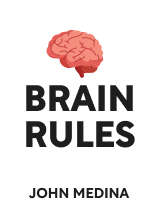

This article is an excerpt from the Shortform book guide to "Brain Rules" by John Medina. Shortform has the world's best summaries and analyses of books you should be reading.
Like this article? Sign up for a free trial here .
Are you stressed out? What are the major signs of stress at work and home that you should look out for?
In his book, Brain Rules, Dr. John Medina describes work and home as the two environments people are most likely to experience signs of stress. At work and home, stress can make you lose sleep and cause damage to your relationships. Luckily, there are ways to reduce this stress.
Here are the indications of stress at work or home and how to avoid them, according to Medina.
Recognizing Signs of Stress at Work
Work is where you’ll find signs of stress. At work in any career field, there are moments of stress, but some jobs can become overwhelming. Workplace stress occurs when there’s a great deal expected of an employee, but the employee has little control over the quality of their work.
A job that causes frequent boredom for an employee also causes stress. Yet a completely unpredictable job is also stressful, so the happy medium would be a reliable job that offers some variety.
Finally, stress at home can cause stress at work, and vice versa. This is called a “work-family conflict.” Stress begins at home or at work, which then causes stress in the other space, leading to a vicious cycle of unabating stress in both areas of your life.
The Benefits of Leaving Stressful Work
Many workers agree with Medina that work can be stressful, and some respond by leaving their jobs. Workers who do so often cite unpredictable scheduling, inflexible time off, workplace conflicts, and lack of benefits as reasons. Stressful jobs can cause you to feel tired, irritable, unmotivated, and can cause sleep loss—and leaving a job can help to ease these symptoms of stress at work.
Experts advise that as long as you have sufficient savings or will be able to quickly find a new job, leaving a stressful job can help your overall mental health and can allow you to find more fulfilling work.
Stress at Home
The pressure of performing well at a job can create more signs of stress at work, and home is no different. Raising children is just like any job, and it can come with the burden of stress as well.
Stress in our home lives, often caused by frequent conflicts in the home, can be ongoing and damaging to children. Kids have strong reactions to their parents or caregivers fighting, such as physical tension or yelling at their parents to stop.
These responses indicate that arguments among caregivers make children reach their stress limit. If these conflicts are ongoing, the negative impacts of stress on children can be long-lasting, potentially leading to poor academic performance, increased rates of teenage pregnancy, and a higher likelihood of poverty.
How to Help Reduce Children’s Stress at Home
Medina writes that conflict between caregivers causes children stress, but many other factors can lead to stress in childrens’ home lives: for example, moving to a new town, loss of a loved one or pet, or high expectations from family members. In addition to the reactions Medina describes, a child experiencing chronic stress in the home might also display behavioral changes like acting out or spending more time alone.
Medina suggests taking a slightly different approach than you would confronting signs of stress at work. To help reduce stress in a child’s life, try listening to and acknowledging the child’s feelings about the source of stress, ensuring they have a consistent sleep schedule and healthy eating habits, and maintaining routines. Even if you can’t remove the source of stress, like if you’re moving to a new house, these strategies can help children cope with stressful situations.

———End of Preview———
Like what you just read? Read the rest of the world's best book summary and analysis of John Medina's "Brain Rules" at Shortform .
Here's what you'll find in our full Brain Rules summary :
- An explanation of how the brain works in a simple and accessible way
- The 12 rules that help fulfill the core functions of the brain
- How to improve your thinking and learning abilities






